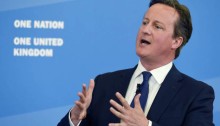Crypto and empire: the contradictions of counter-surveillance advocacy
Since Edward Snowden’s revelations of US and UK surveillance programs, privacy advocates, progressive security engineers, and policy makers have been seeking to win majority support for countering surveillance. The problem is framed as the replacement of targeted surveillance with mass surveillance programs, and the solutions put forward are predominantly technical and involve the use of…









